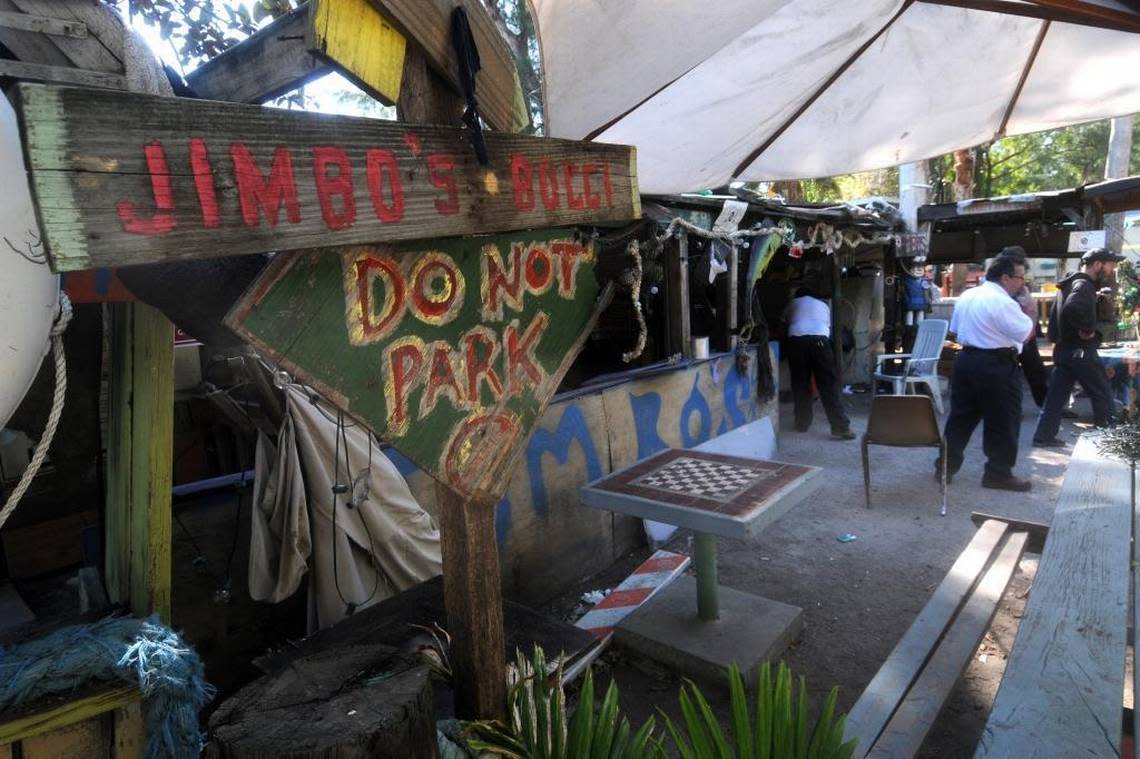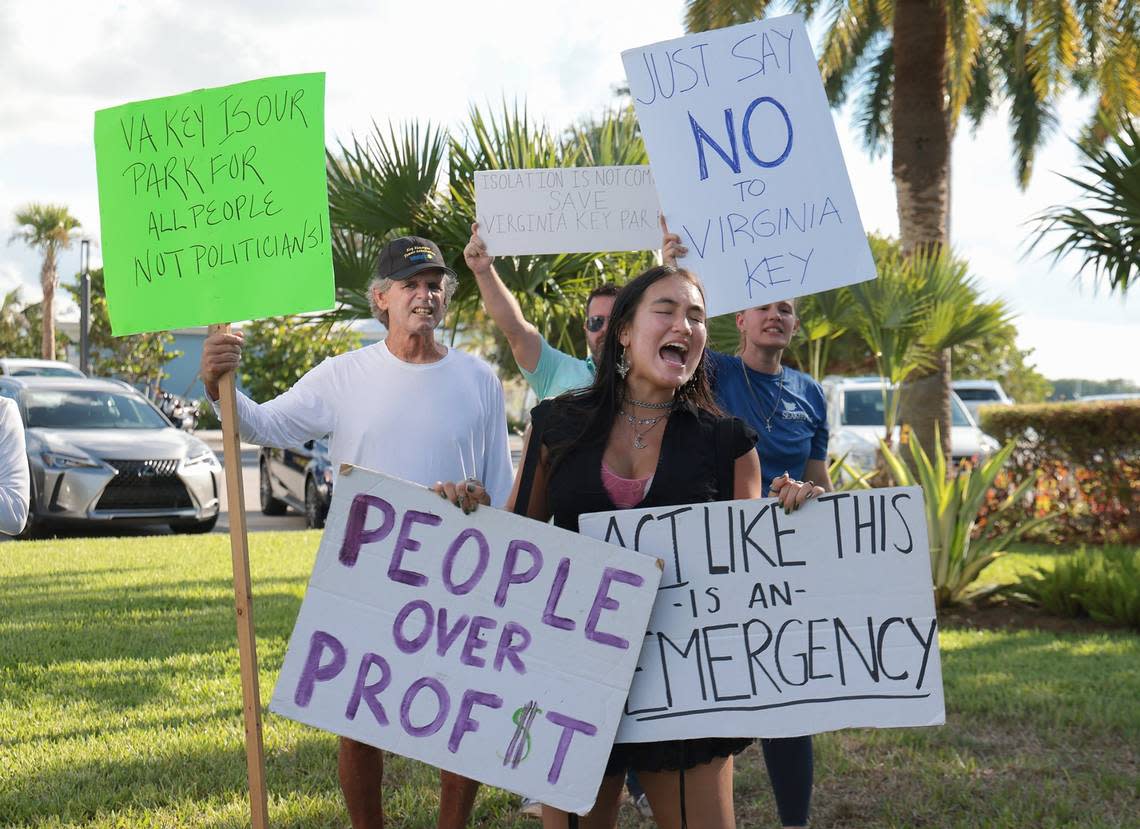The city of Miami has tried to restore these cultural landmarks. See what happened to them
The city of Miami has overseen restoration projects on cultural institutions in the past with mostly dismal results.
The Miami Marine Stadium, Olympia Theater and Coconut Grove Playhouse have only languished under the city’s stewardship.
Supporters of the goal to build a civil rights museum at Historic Virginia Key Beach Park fear a similar scenario. After commissioners disbanded the park’s managing trust with no plan on how to complete the project, there’s concern that the park will be neglected, the museum won’t be built, and the city, complaining about the cost of running the park, will shut it down, as it did previously in 1982.
Elected officials insist they are committed to moving museum plans forward and preserving Virginia Key’s environment, but the city’s past management of cultural facilities breeds deep skepticism.
Here are examples of the city’s record:
Miami Marine Stadium
The 1963 Modernist architectural gem designed by Hilario Candela, which was placed on the National Trust for Historic Preservation’s 11 Most Endangered List in 2009, is surrounded by fencing. The Virginia Key landmark used to be the picturesque venue for waterfront concerts and boat races. It’s been closed for 30 years, since Hurricane Andrew caused damage to the structure in 1992. It’s been all but abandoned, except by skateboarders and graffiti artists.
Various advocates have tried to jump-start the stadium’s revival — including Gloria Estefan and Jimmy Buffett — but have encountered frustration.
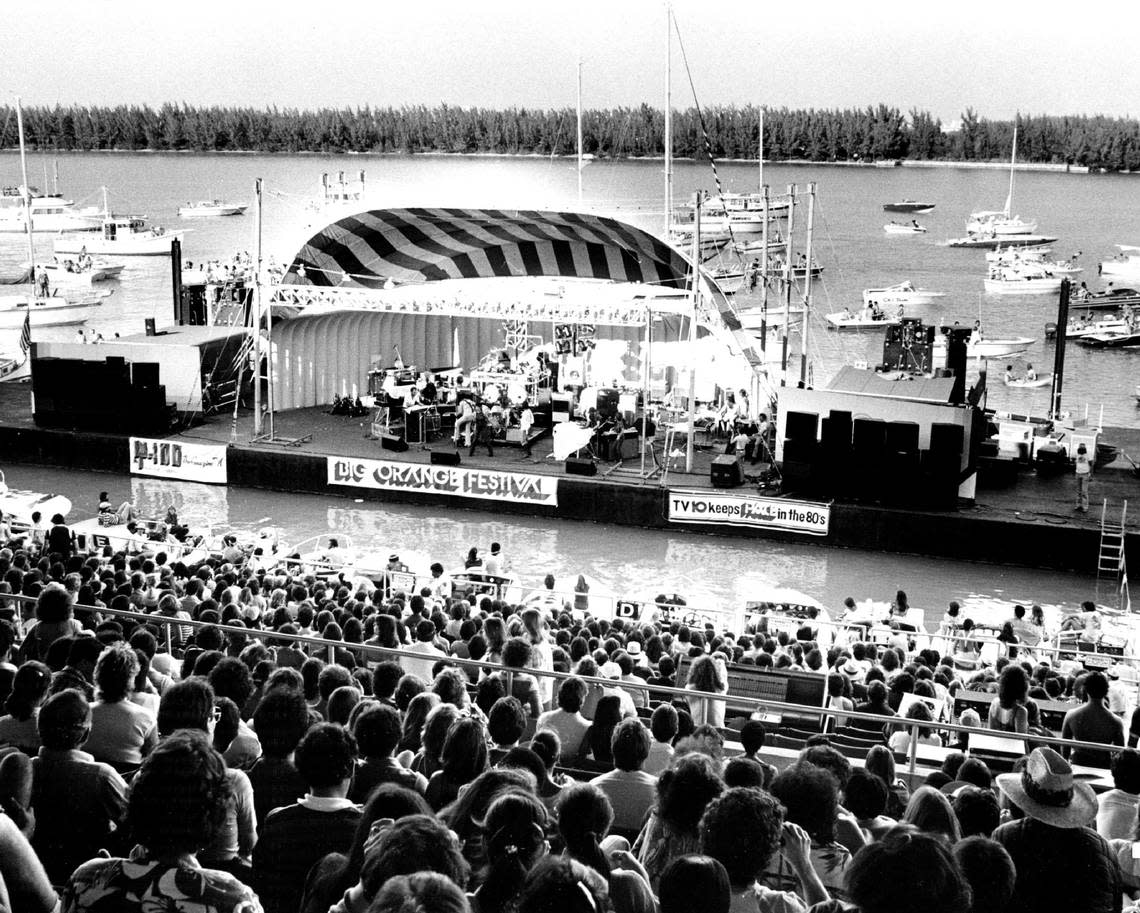
The city has adopted a $45 million restoration plan for the stadium and hired a design firm to convert the vast parking lot into a park that would complement the stadium basin. It’s unclear when construction might begin. At the same time, the city is pushing a plan to construct a boat ramp adjacent to the stadium for the launching of 40-foot motorboats and dedicating 72 spaces in the lot for trailer parking.
Right now, the lot is a late-night spot for spinning “donuts” on the pavement by would-be stunt drivers. And the Magic Mike Live tour has set up a large tent in the lot for performances throughout January.
Olympia Theater
Formerly known as the Gusman, the ornate grande dame on Flagler Street downtown features twinkling stars on the royal blue ceiling. It’s crumbling facade is covered with chicken wire. Scaffolding has been up for years.
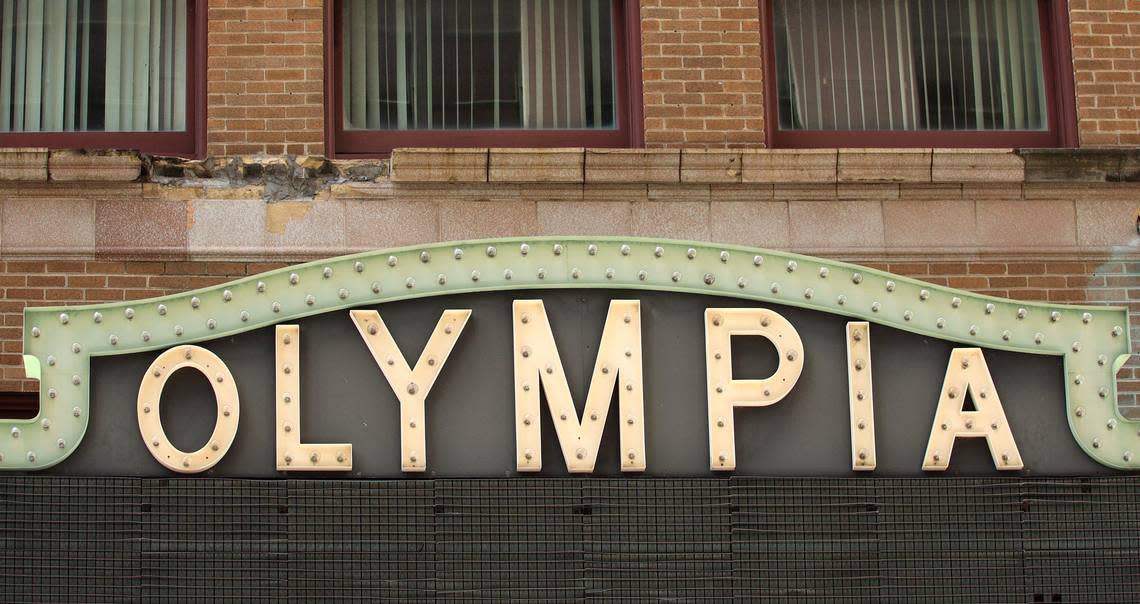
Designed to replicate a Spanish garden, the silent movie palace opened in 1926. Over the years it hosted the Marx Brothers, Gypsy Rose Lee, Elvis Presley, Etta James, plays and films.
Businessman Maurice Gusman purchased the theater in 1970 to save it from demolition, and it was renamed in his honor. He donated the property to the city in 1975. Various rounds of renovation ensued. There were periodic closures as management changed hands.
Johnny Cash, Luciano Pavarotti and The Police performed there. The Miami Film Festival held screenings. In 2014, the theater got its original name back. In 2020, faced with more repair costs and closure during the pandemic, the management company turned the theater over to the city.
The city hired R.J. Heisenbottle Architects to assess the state of the building and a possible renovation and lease plan.
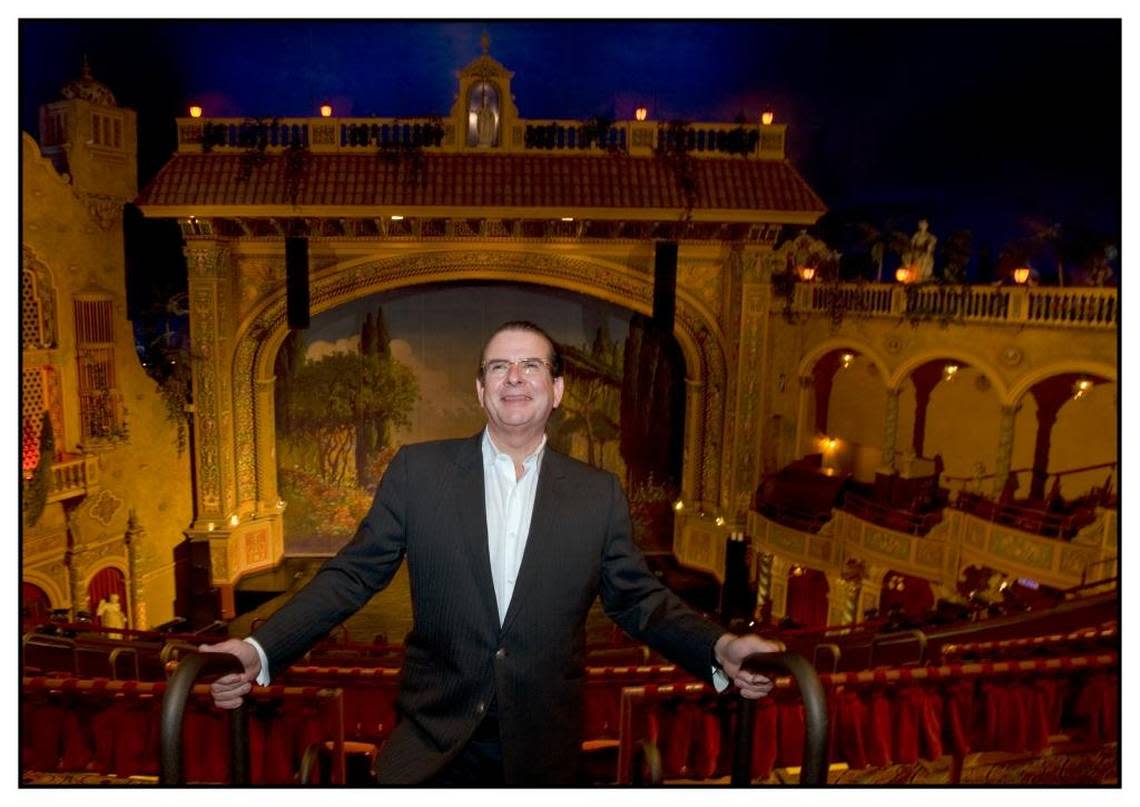
Miami Dade College considered managing the theater and the apartments above it but decided it wasn’t financially feasible. Proposals by developers for a public-private partnership to restore the theater and convert the apartments into residential units or a new boutique hotel did not pan out.
The Olympia is currently hosting “Van Gogh: The Immersive Experience.”
Coconut Grove Playhouse
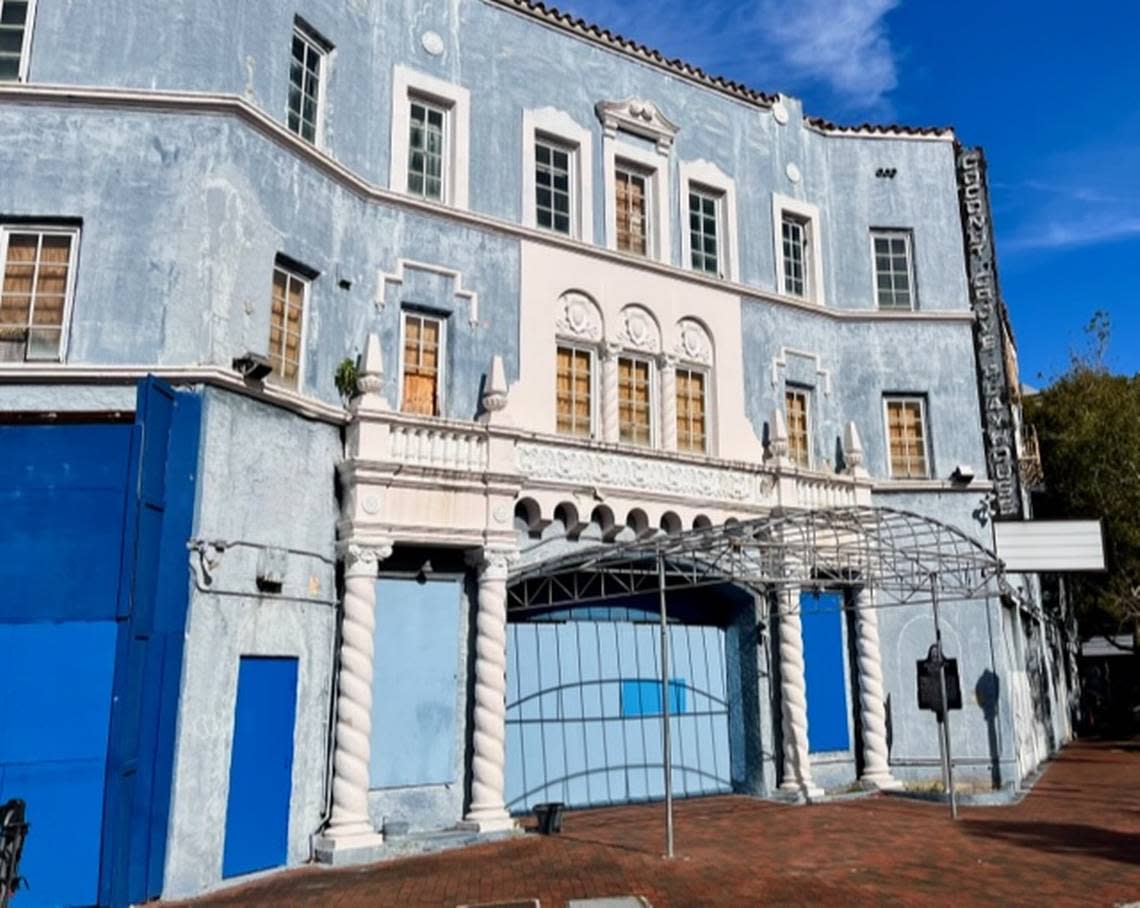
City leaders have disagreed with each other over this landmark that is poised for a revival. Commissioners and Miami Mayor Francis Suarez sparred over how to proceed, holding up progress of Miami-Dade County’s detailed plan for restoration for years with no detailed alternative plan in the works. The tangled tale includes lawsuits, appeals, votes, vetoes and near constant wrangling about what to do with the place since it closed with a huge debt burden in 2006.
The playhouse opened as a movie theater in 1927, was converted into a live theater in 1956 with the U.S. premiere of Samuel Beckett’s “Waiting for Godot” and had many famous performers on its stage. José Ferrer was once its artistic director. It’s on the National Register of Historic Places.
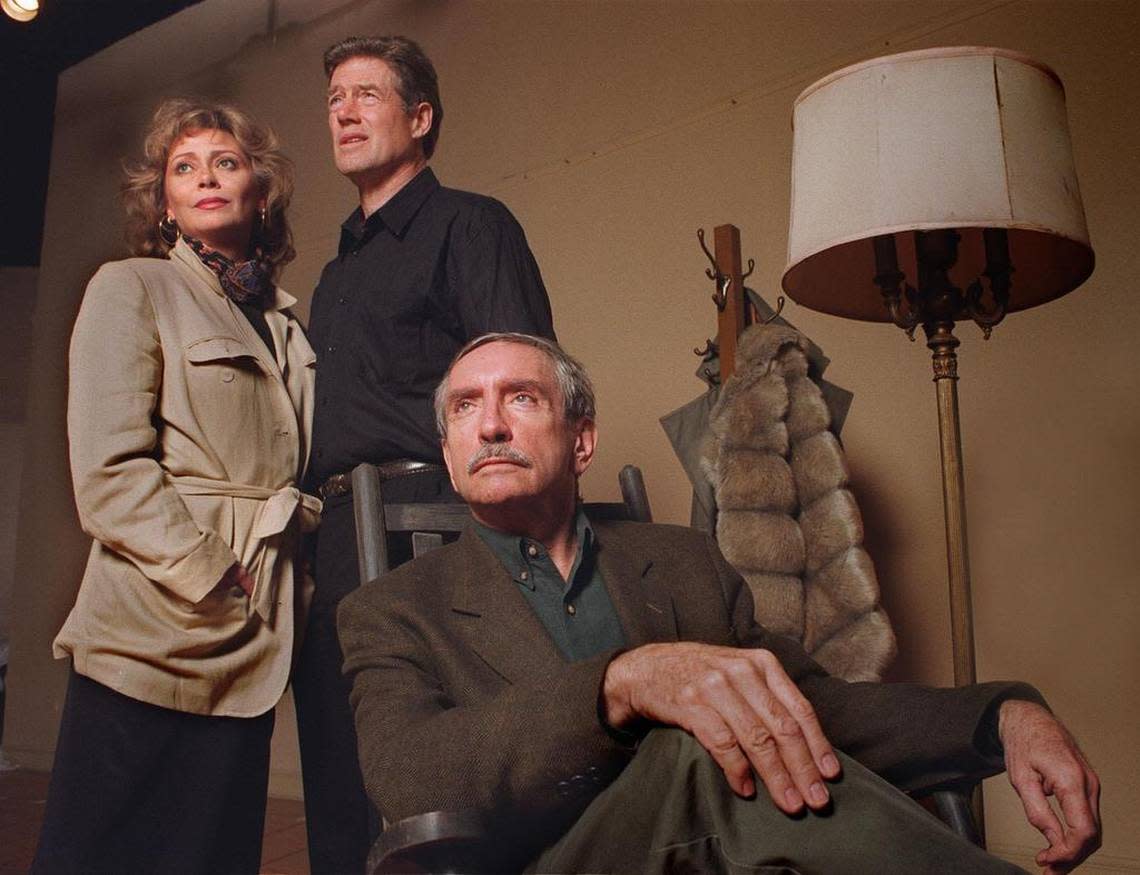
In 2014, the state of Florida turned over operation of the theater to Miami-Dade County, which subsequently developed a plan to make the playhouse the home of GableStage and pledged $20 million in bond money. The city-county dispute centers on the size and design of a renovated playhouse. The county would reduce the number of seats to 300. The city wants 700 seats, which the county argues would be economically unsustainable.
Even after Suarez-led litigation ended and a path forward looked possible, residents recently filed a new lawsuit to stop the county plan. There is no solution in sight.
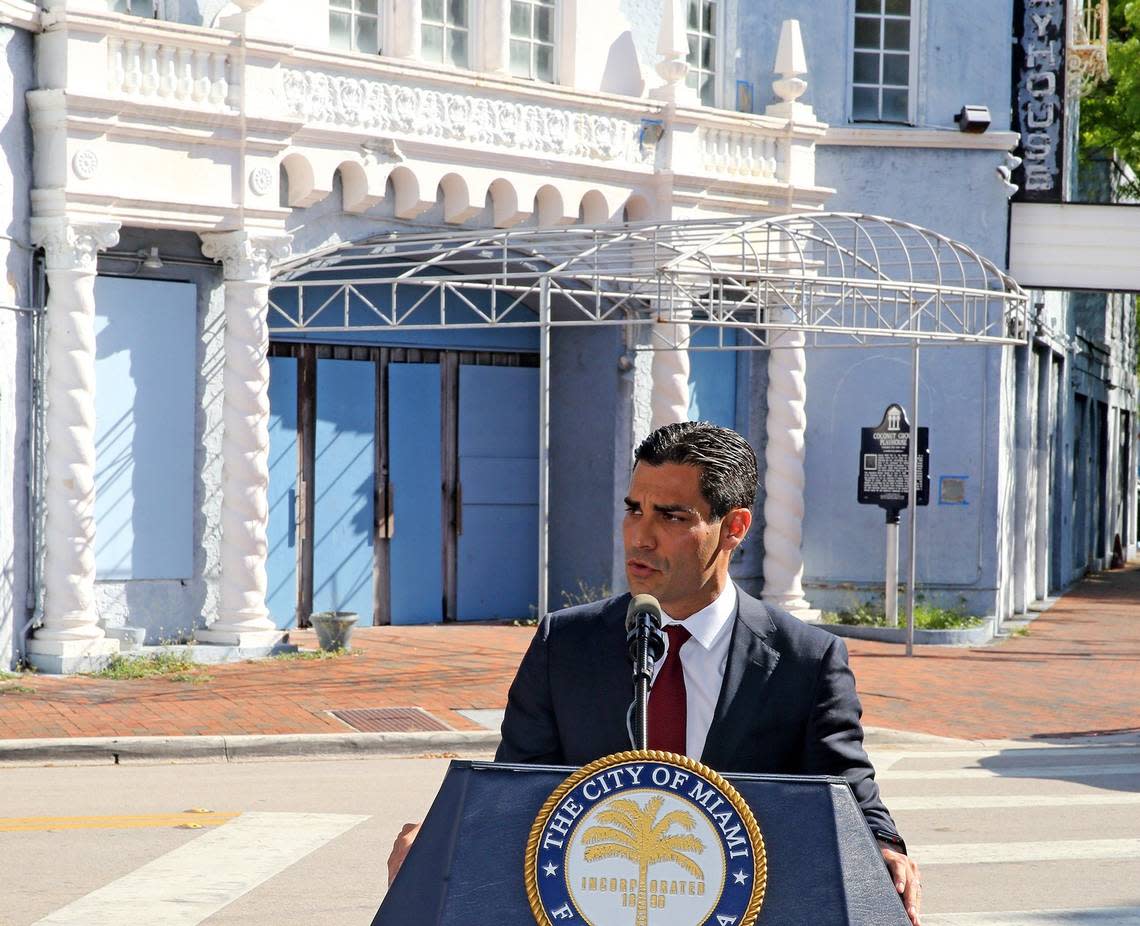
Virginia Key Outdoor Center
The popular center for kayak, canoe, paddleboard rentals and eco tours was shut down and taken over by the city in October after its director, Esther Alonso, Virginia Key activists and advocates for homeless people complained about Commissioner Joe Carollo’s proposal to build a homeless encampment next door. City officials said the center was operating without proper permits and owed more than $100,000 in past due rent. Alonso claimed retaliation and disputed some of the city’s claims.
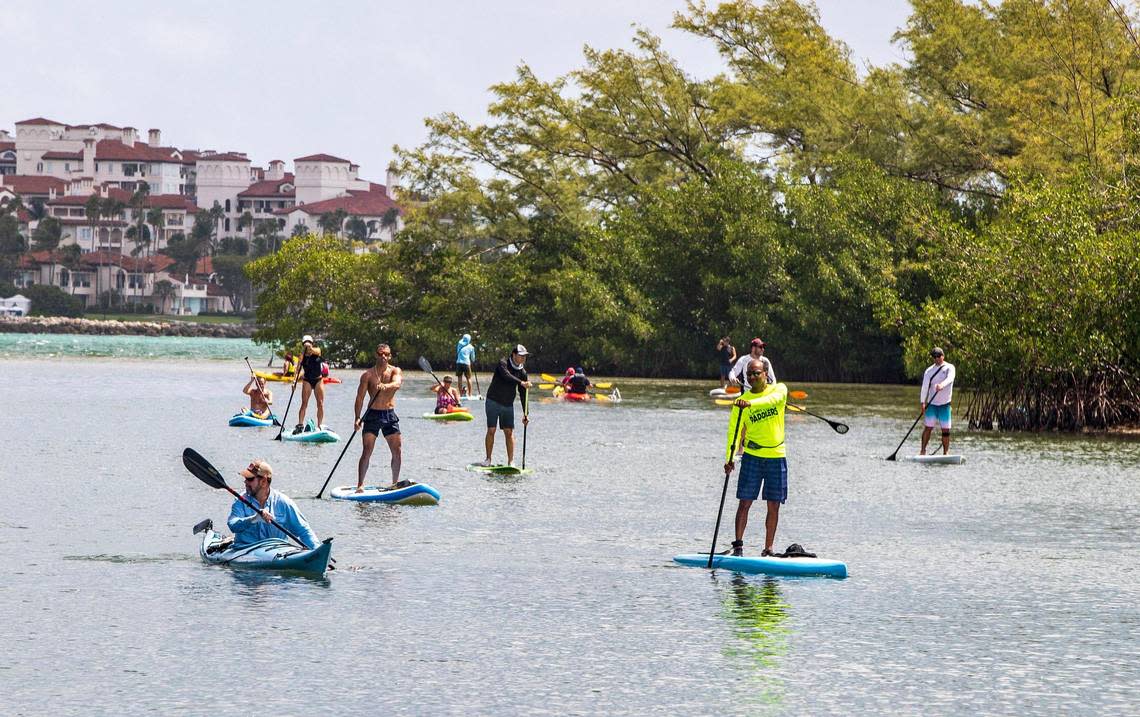
The center, which was a hub for paddlers using the old Jimbo’s bar and fish shack lagoon (which the city spent millions of dollars to restore as a nature sanctuary with a dock, seawall and kayak ramp), remains closed.
